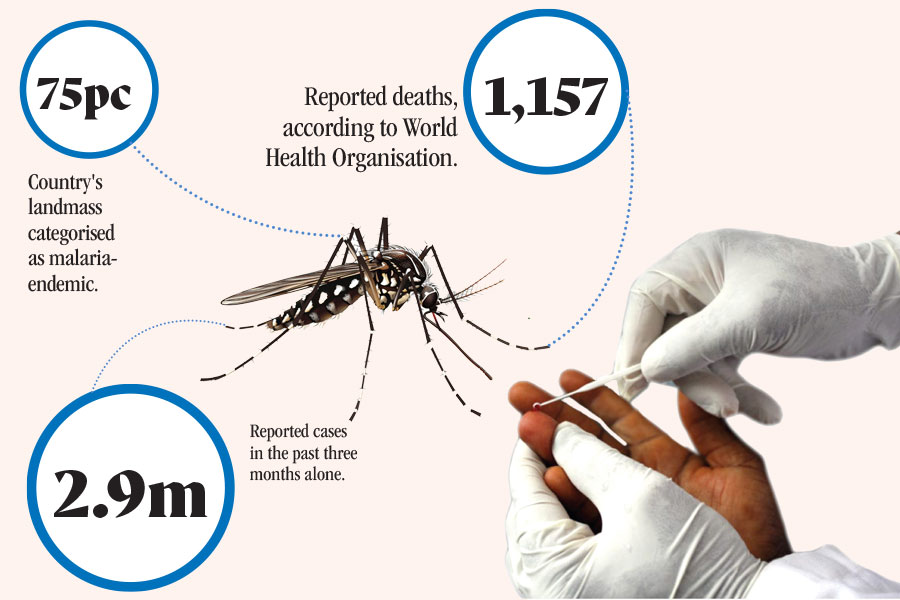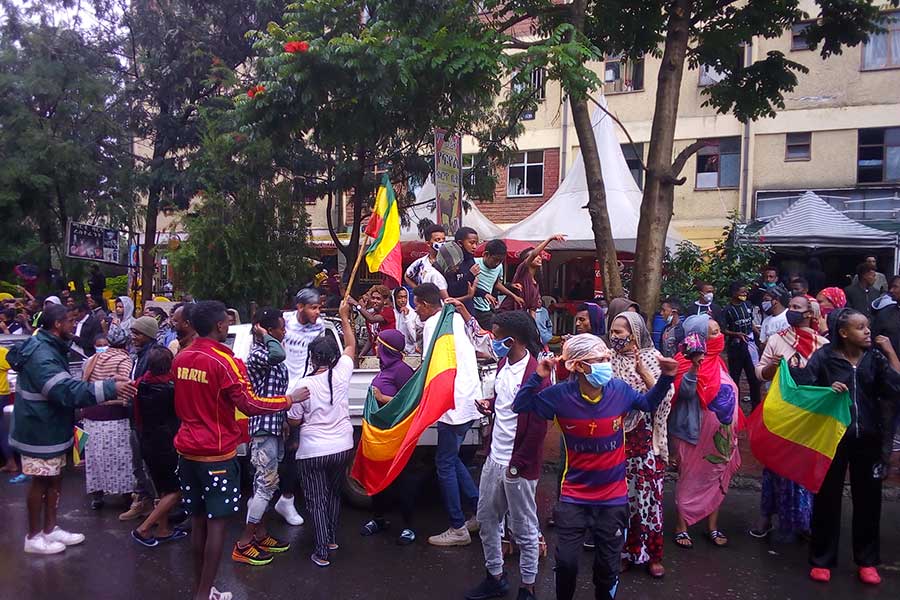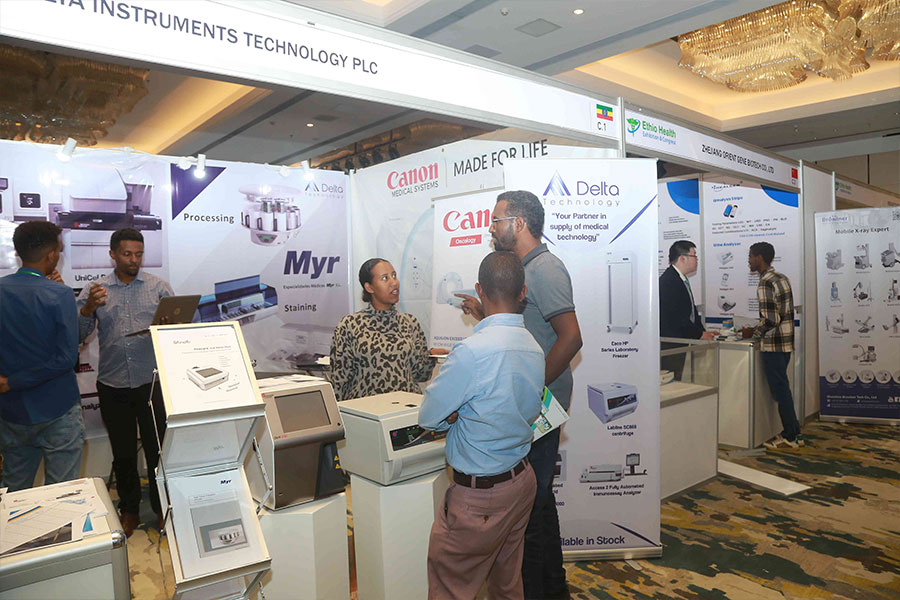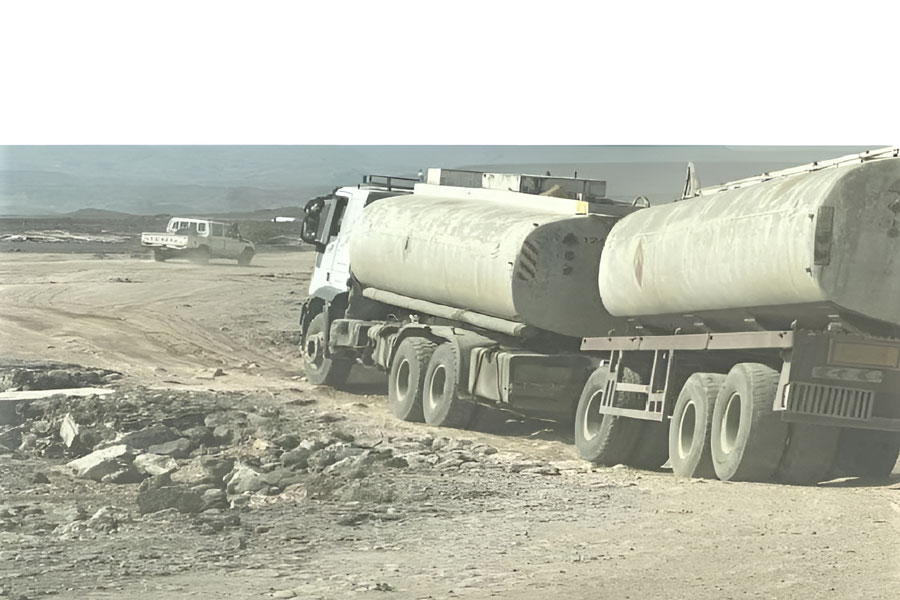
Fineline | Apr 12,2020
Planned projects to develop a logistics corridor to Eritrea and Djibouti are bound to suffer delay, after the European Union (EU) decided to hold up disbursements of financial aid due to concerns in Brussels over the humanitarian situation unfolding in Tigray Regional State. The funding, which was earmarked in three instalments over the remainder of the year, was to be disbursed following the fulfilment of conditions that include unfettered humanitarian access for relief workers, the restoration of communication lines, as well as media access in the region.
EU officials in Brussels have suspended 88.5 million euros in direct budget support to the country's health and logistics sectors, the latter comprising two-thirds of the financial support. Close to 17.5 million euros was earmarked to support the health sector, including payments for prenatal care, additional health workers, and enhancing health facilities. The EU was committed to provide 1.2 billion euros in financial support over a period of six years beginning in 2014, of which 800 million dollars was allocated to development work.
The aid suspension arrivedlast week following the conflict that broke out in the northern part of the country between the federal government and former administration of Tigray Regional State. The conflict resulted in a refugee crisis where over 50,000 people, half of them children, fled to Sudan and the interruption of basic services such as water, electricity and communications, services that were recently partially restored.
The aid was particularly aimed at the maintenance of the trunk roads leading to the exits of the country, according to Erik Habers, head of cooperation at the Delegation of the EU to Ethiopia.
"This support has been ongoing for 25 years," he said. "Initially, it was going toward building these roads leading to other regions jointly with the government."
These trunk roads include routes to Djibouti and Bahir Dar, as well as roads leading to Modjo Dry Port. The funding was also going toward objectives that Ethiopia had established under the Common Market for Eastern & Southern Africa (COMESA), a free trade movement with 20 other member countries. Indicators here include the time it takes for one container to get from a port to a warehouse in the city, the amount of cargo handled over a period of time, and the commitment to work with a logistics council.
Though the release of the funds depends on the achievement of targets set by the government, there was space for negotiations where that was not the case, according to Erik.
"There are various reasons why targets may not be achieved," he said. "This includes instances that are outside of the government's control."
The decision to postpone the funding shows the level of seriousness with which this issue is viewed by the European Union. Johan Borgstam, head of the EU Delegation to Ethiopia, sees a lack of independent investigations on the numerous claims of human rights abuses coming from Tigray Regional State and widespread ethnic profiling remaining a cause for concern for the EU.
"It's in the interest of the government to get independent investigators and forensic experts," Borgstam told Fortune. "It'll be a clear signal for any country that there is nothing to hide."
But the Ethiopian government asserts that it has deployed local independent investigators to the Regional State to examine the circumstances. A Spokesperson for the Ministry of Foreign Affairs, Dina Mufti, believes all the pre-conditions are already in place.
"A humanitarian corridor has been opened," he told Fortune. "There are modules of operation in place with the UN, and Ethiopia is doing its level best to deliver aid to those in need. We want to nurture and grow the relationship with the European Union. The country is a sovereign state; the EU shouldn't ask of Ethiopia what it doesn't ask of its own countries."
The Spokesperson mentioned operationalised resettlement schemes in the region along with the work of the interim government as indicators that things are returning to normal.
The EU’s Envoy in Addis believes Prime Minister Abiy Ahmed's statement on the distinction between members of the TPLF and the people of Tigray could not be understated. However, the EU is concerned by what seems to be the ethnically targeted suspension of non-military personnel from work.
"Though the future remains to be seen, this is an important and clear signal," he told Fortune. "It was made with the hope that Ethiopia will move toward these requests."
Ethiopia is not a region under the Union, and interfering on internal matters of a country is tantamount to questioning the sovereignty of the country, according to experts. Humanitarian access should be guaranteed but through government coordination, as it was done in times of peace, let alone war, according to Kassahun Berhanu, (PhD), professor of political science & international relations at Addis Abeba University.
"This isn't because the EU demands it or not," he said. "There needs to be security and peace established by the government now as it goes."
The recent aid suspension makes the European Union, among no less than 21 bilateral and multilateral donors for Ethiopia, the first and the only one that has responded strongly against the military conflict in Tigray.
PUBLISHED ON
Dec 19,2020 [ VOL
21 , NO
1077]

Fineline | Apr 12,2020

Fortune News | Nov 16,2024

Viewpoints | Jul 17,2022

Radar | Oct 14,2023

Radar | Aug 08,2020

Radar | Feb 25,2023

Radar | Sep 28,2019

Radar | Apr 10,2021

Commentaries | Apr 25,2020

Agenda | Dec 24,2022

Dec 22 , 2024 . By TIZITA SHEWAFERAW
Charged with transforming colossal state-owned enterprises into modern and competitiv...

Aug 18 , 2024 . By AKSAH ITALO
Although predictable Yonas Zerihun's job in the ride-hailing service is not immune to...

Jul 28 , 2024 . By TIZITA SHEWAFERAW
Unhabitual, perhaps too many, Samuel Gebreyohannes, 38, used to occasionally enjoy a couple of beers at breakfast. However, he recently swit...

Jul 13 , 2024 . By AKSAH ITALO
Investors who rely on tractors, trucks, and field vehicles for commuting, transporting commodities, and f...

Nov 1 , 2025
The National Bank of Ethiopia (NBE) issued a statement two weeks ago that appeared to...

Oct 25 , 2025
The regulatory machinery is on overdrive. In only two years, no fewer than 35 new pro...

Oct 18 , 2025
The political establishment, notably the ruling party and its top brass, has become p...

Oct 11 , 2025
Ladislas Farago, a roving Associated Press (AP) correspondent, arrived in Ethiopia in...